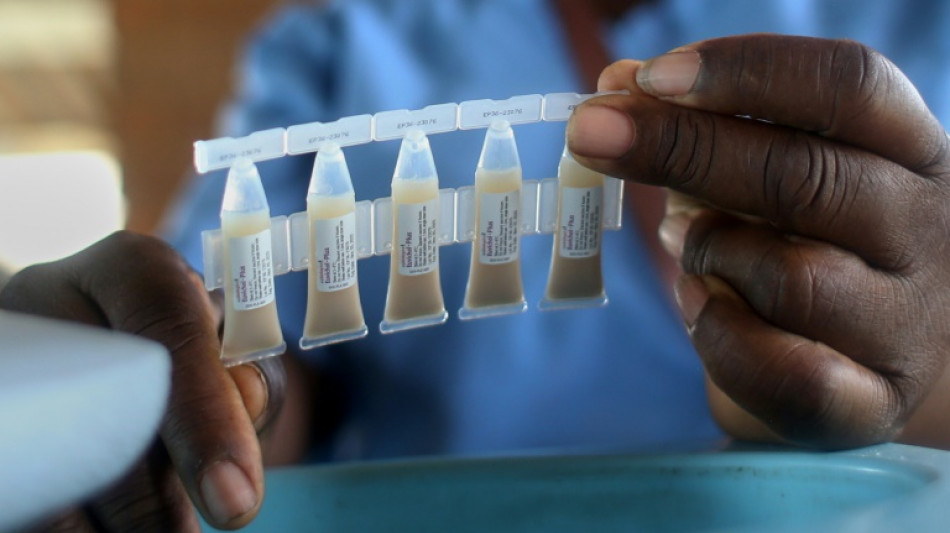
-
 Dutch PM-elect Jetten says not yet time to talk to Putin
Dutch PM-elect Jetten says not yet time to talk to Putin
-
Social media fuels surge in UK men seeking testosterone jabs

-
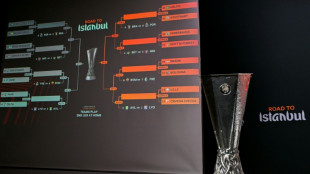 Forest face Fenerbahce, Celtic draw Stuttgart in Europa League play-offs
Forest face Fenerbahce, Celtic draw Stuttgart in Europa League play-offs
-
US speed queen Vonn crashes at Crans-Montana, one week before Olympics

-
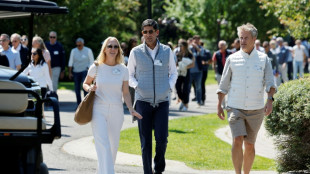 Trump nominates former US Fed official as next central bank chief
Trump nominates former US Fed official as next central bank chief
-
New Dutch government pledges ongoing Ukraine support
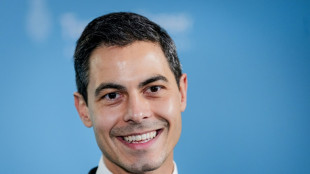
-
 Newcastle still coping with fallout from Isak exit, says Howe
Newcastle still coping with fallout from Isak exit, says Howe
-
Chad, France eye economic cooperation as they reset strained ties
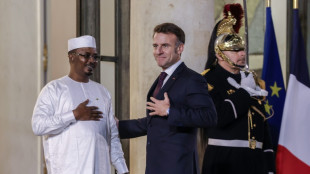
-
 Real Madrid to play Benfica, PSG face Monaco in Champions League play-offs
Real Madrid to play Benfica, PSG face Monaco in Champions League play-offs
-
Everton winger Grealish set to miss rest of season in World Cup blow

-
 Trump brands Minneapolis nurse killed by federal agents an 'agitator'
Trump brands Minneapolis nurse killed by federal agents an 'agitator'
-
Arteta focuses on the positives despite Arsenal stumble

-
 Fijian Drua sign France international back Vakatawa
Fijian Drua sign France international back Vakatawa
-
Kevin Warsh, a former Fed 'hawk' now in tune with Trump

-
 Zverev rails at Alcaraz timeout in 'one of the best battles ever'
Zverev rails at Alcaraz timeout in 'one of the best battles ever'
-
Turkey leads Iran diplomatic push as Trump softens strike threat

-
 Zelensky backs energy ceasefire, Russia bombs Ukraine despite Trump intervention
Zelensky backs energy ceasefire, Russia bombs Ukraine despite Trump intervention
-
'Superman' Li Ka-shing, Hong Kong billionaire behind Panama ports deal

-
 Skiing great Lindsey Vonn crashes at Crans-Montana, one week before Olympics
Skiing great Lindsey Vonn crashes at Crans-Montana, one week before Olympics
-
Slot warns Liverpool 'can't afford mistakes' in top-four scrap

-
 Paris show by late Martin Parr views his photos through political lens
Paris show by late Martin Parr views his photos through political lens
-
Artist chains up thrashing robot dog to expose AI fears

-
 Alcaraz outlasts Zverev in epic to reach maiden Australian Open final
Alcaraz outlasts Zverev in epic to reach maiden Australian Open final
-
French PM forces final budget through parliament

-
 French-Nigerian artists team up to craft future hits
French-Nigerian artists team up to craft future hits
-
Dutch watchdog launches Roblox probe over 'risks to children'

-
 Trump brands Minneapolis nurse shot dead by federal agents an 'agitator'
Trump brands Minneapolis nurse shot dead by federal agents an 'agitator'
-
Israel says killed 'three terrorists' in Gaza

-
 After Trump-fueled brawls, Canada-US renew Olympic hockey rivalry
After Trump-fueled brawls, Canada-US renew Olympic hockey rivalry
-
Eileen Gu - Olympic champion who bestrides rivals US, China

-
 Trump, first lady attend premier of multimillion-dollar 'Melania' documentary
Trump, first lady attend premier of multimillion-dollar 'Melania' documentary
-
US Senate eyes funding deal vote as government shutdown looms

-
 Cuddly Olympics mascot facing life or death struggle in the wild
Cuddly Olympics mascot facing life or death struggle in the wild
-
UK schoolgirl game character Amelia co-opted by far-right

-
 Anger as bid to ramp up Malaysia's football fortunes backfires
Anger as bid to ramp up Malaysia's football fortunes backfires
-
Panama court annuls Hong Kong firm's canal port concession

-
 Pioneer African Olympic skier returns to Sarajevo slopes for documentary
Pioneer African Olympic skier returns to Sarajevo slopes for documentary
-
Trump threatens tariffs on nations selling oil to Cuba

-
 From fragile youngster to dominant star, Sabalenka chases more glory
From fragile youngster to dominant star, Sabalenka chases more glory
-
Lowly Montauban 'not dead' in French Top 14 survival hunt

-
 'Winter signing' Musiala returns to boost weary Bayern
'Winter signing' Musiala returns to boost weary Bayern
-
Elena Rybakina: Kazakhstan's ice-cool Moscow-born Melbourne finalist

-
 Power battle as Sabalenka clashes with Rybakina for Melbourne title
Power battle as Sabalenka clashes with Rybakina for Melbourne title
-
Contrasting fortunes add Basque derby edge for Matarazzo's revived Sociedad

-
 Asian stocks hit by fresh tech fears as gold retreats from peak
Asian stocks hit by fresh tech fears as gold retreats from peak
-
Kim vows to 'transform' North Korea with building drive

-
 Peers and Gadecki retain Australian Open mixed-doubles crown
Peers and Gadecki retain Australian Open mixed-doubles crown
-
Britain's Starmer seeks to bolster China ties despite Trump warning

-
 Kaori Sakamoto - Japan skating's big sister eyes Olympic gold at last
Kaori Sakamoto - Japan skating's big sister eyes Olympic gold at last
-
Heavy metal: soaring gold price a crushing weight in Vietnam


Pressure on cholera vaccine stocks 'decreasing': Gavi alliance
A resurgence of cholera across Africa has driven an urgent need for more vaccine doses, but stock shortages have hampered the fight against the increasing outbreaks of the deadly disease.
But pressure on the supply of doses is now decreasing, said Aurelia Nguyen, chief programme officer of the Gavi vaccine alliance that raises funds to supply vaccines to developing countries.
Ahead of a summit in Paris on Thursday aimed at ramping up vaccine production in Africa, Nguyen told AFP about the current state of play.
- How many doses are there? -
Nguyen: "Cholera outbreaks are becoming more and more frequent, more and more widespread, and are occurring more often in countries that had previously been spared.
"For years, demand for cholera vaccines had been relatively low. From two million in 2013, the supply of doses exploded to 38 million in 2023. Given the current context, the response to these outbreaks follows the World Health Organization's recommendation to administer a single dose, instead of the usual two.
"Due to the number of currently ongoing cholera outbreaks, our supply of vaccines was under pressure at the start of the year. But the pressure is now decreasing and we are once again in a position to immediately respond to new requests.
"The South Korean biopharmaceutical company EuBiologics, the only supplier of oral cholera vaccines, will increase its production by 30 percent this year and next. This increase was made possible in particular by Gavi's purchases over several years.
"Gavi therefore expects to receive 50 million doses in 2024 and around 65 million in 2025.
"Because it is important to diversify suppliers and increase volumes, we are working with a second producer, the Indian company Bharat. The firm will be able to supply more doses in 2025, as will producers in Africa in the future.
"Cholera is part of the 10-year, $1 billion initiative aimed at supporting vaccine production in Africa."
- What is driving new outbreaks? -
"Climate change is a factor that is embedded in our new strategy. This is the first time that global warming has been a criteria for investment in future vaccinations -- for example, against dengue fever.
"As well as diseases transmitted by mosquitoes, Gavi also monitors those related to populations that have been displaced by drought.
"Wherever there is conflict or a displaced population, there is a significant risk of outbreaks which rises the longer the fighting goes on. Whether it is for cholera, yellow fever, meningitis, measles -- we have vaccine reserves ready.
"Gavi works closely with the WHO to keep an eye on new pathogens that may emerge, and we take climate shocks into account in our projections for future vaccine needs.
"We have the money available ($500 million set aside) to finance a rapid response on the day an epidemic or pandemic is declared."
- What about manufacturers? -
"Thanks to our funding, Gavi vaccinates around 60 percent of the children born on Earth every year. We do not ask manufacturers to give us charity, but to sell to us at a reasonable price. The model has to be viable from the view of pharmaceutical firms so they invest in the requested volume.
"That said, given the poor countries we represent and the resources provided by our donors, we do ask for the price to be the lowest available.
"We are not a discount store -- we give the same products to children in Burkina Faso that are available to children in Switzerland. This is essential to retain confidence in the model. We will never give out an expired dose."
J.Sauter--VB



